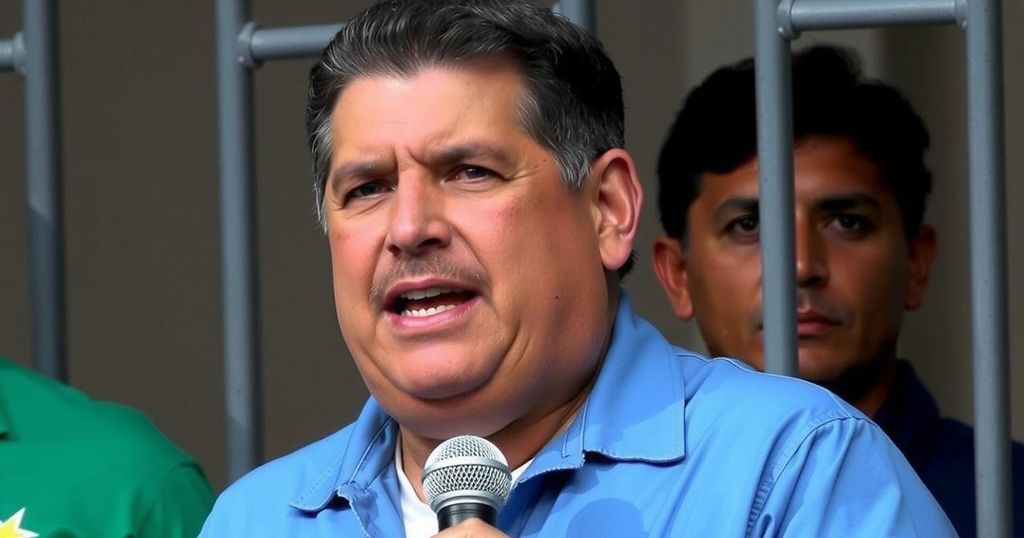Venezuela’s government reaffirmed its intention to arrest opposition leader González, who claims victory over Maduro in last year’s election. González, in exile in Spain, plans to return to Venezuela to assume the presidency, while Maduro prepares for his third term amidst accusations of electoral fraud and lack of transparency. The U.S. and European nations reject official results, viewing González as the legitimate winner.
CARACAS, Venezuela — Venezuela’s government has reaffirmed its determination to arrest the opposition leader, who claims to have defeated President Nicolás Maduro in the recent presidential election, through a pronouncement from the ruling party-dominated congress. The opposition figure, González, fled to Spain in September following the issuance of an arrest warrant for his alleged involvement in an election-related investigation. Recently, he has expressed his intention to return to Venezuela to take oath for the presidential term, which legally commences on January 10. However, he has yet to articulate how he intends to reclaim power from Maduro, who maintains control over all governmental institutions and the military.
Following his re-election as president of the National Assembly, Rodriguez remarked, “That unworthy being… has been saying that he is going to return to the Bolivarian Republic of Venezuela. Each and every deputy who defends peace will request, if he touches a bit of land of the Bolivarian Republic of Venezuela, his immediate arrest.” González is currently touring Latin America, having made stops in Argentina and Uruguay, and he is en route to the United States with anticipation of discussions with President Joe Biden. Plans to visit Panama and the Dominican Republic have also been highlighted.
Amid this political clash, Maduro has received an invitation from the National Assembly to be sworn in for a third term, nearly six months after the National Electoral Council, which is heavily influenced by Maduro loyalists, declared him the victor of the July 28 election. In contrast to previous elections, detailed vote counts were not made available by the electoral authorities. Nevertheless, the opposition has gathered results from over 80% of the electronic voting machines, suggesting that González secured double the votes of Maduro.
International condemnation targeted the lack of electoral transparency, prompting Maduro to request an audit of the results from the high court, which is similarly controlled by his party’s supporters. The court ultimately reaffirmed Maduro’s victory. The United States and numerous European governments have dismissed the election results as illegitimate and recognize González as the rightful winner. Rodriguez informed the National Assembly that the potential request for González’s arrest stems from a newly ratified law permitting the prosecution of individuals advocating for economic sanctions similar to those implemented by the United States against Venezuela.
The article addresses the ongoing political tension in Venezuela, marked by the government’s threat to arrest an opposition leader, González, who claims to have won the presidential election. This situation is exacerbated by the government’s tight control over all state institutions and military, thereby raising important questions around electoral integrity and governance in Venezuela. The context of international perspectives on the election results and the legitimacy of the opposition leader adds to the complexity of the political landscape within the country.
The Venezuelan government’s firm stance on arresting the opposition leader illustrates the deepening political rift in the country following the controversial presidential election. The claims of electoral fraud and lack of transparency have incited international condemnation, particularly from the United States and Europe, who recognize González as the legitimate victor. The unfolding scenario continues to reflect the strife between the ruling government and the opposition, revealing significant challenges ahead for Venezuela’s political future.
Original Source: www.washingtonpost.com






